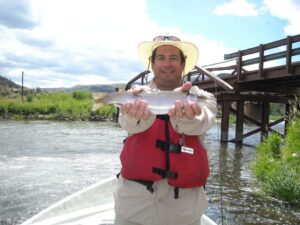Deer Hunting Tips for a Successful Hunt


Deer hunting is a popular activity that many enjoy but it can also be challenging, especially for beginners. To have a successful hunt, it’s important to have a solid plan and understanding of the animal’s behavior. Here are some deer hunting tips to help you improve your chances of a successful hunt:
Understand Deer Behavior and Habitat
Deer are most active during the early morning and late evening hours, so it’s best to hunt during those times. They tend to bed down during the day in thick brush and stay close to water sources like creeks and ponds. Understanding their behavior and habitat can help you spot and predict their movements.
To get an idea of where deer are likely to be, start by studying maps of the hunting area. You can also scout the area by looking for signs of deer activity, such as tracks, droppings, and bedding areas. Talk to the landowner or other hunters who have hunted the area before to get more information when hunting on private land.
Scout Your Hunting Area
Before hunting, scout the area you plan to hunt. Look for signs of deer activity, such as tracks, droppings, and bedding areas, and try to identify potential feeding areas and travel routes. This information can help you plan your hunting strategy and increase your chances of success.
Try to stay downwind of the deer when scouting to avoid spooking them. Look for trails, rubs on trees, and scrapes on the ground, all signs that deer have been in the area. Take note of the terrain and potential ambush points, such as natural funnels or ridgelines, where deer are likely to pass through.
Use Scent Control Techniques
Deers have an excellent sense of smell, so using scent control techniques is important to minimize your scent and increase your chances of staying undetected. Shower with scent-free soap and shampoo, wear scent-free clothing and use scent-eliminating sprays to minimize your scent.
It would help if you also took precautions to avoid spreading your scent around the hunting area. For example, avoid touching vegetation or trees as you move through the woods. Use scent-free gloves and boots, and avoid smoking or eating strong-smelling foods.
Practice Your Shooting Skills
Practice your shooting skills regularly, and make sure you’re comfortable with your equipment, including your rifle or bow. This can help you make accurate shots and avoid injuring the animal unnecessarily.
When practicing, simulate hunting conditions as much as possible. Practice shooting from different positions, such as kneeling or standing, and at varying distances. Practice shooting at targets that mimic the size and shape of a deer to get a feel for where to aim for vital organs.
Be Patient and Persistent
Deer hunting requires patience and persistence. It’s important to stay still and quiet for extended periods and to be prepared to wait for the right opportunity. Avoid making sudden movements or noises that could spook the deer, and be prepared to sit for hours before spotting your target. Remember, hunting is not always successful, and sometimes it takes multiple trips before you have a successful hunt.
If you’re hunting with a partner, communicate with them using hand signals to avoid speaking and making noise. You can also use calls to mimic deer vocalizations and lure deer in closer.
In conclusion, deer hunting can be an enjoyable and challenging activity. By understanding deer behavior and habitat, scouting your hunting area, using scent control techniques, practicing your shooting skills, and being patient and persistent, you can increase your chances of having a successful hunt. Always follow local and state hunting regulations and respect the animal and its environment. Happy hunting!

